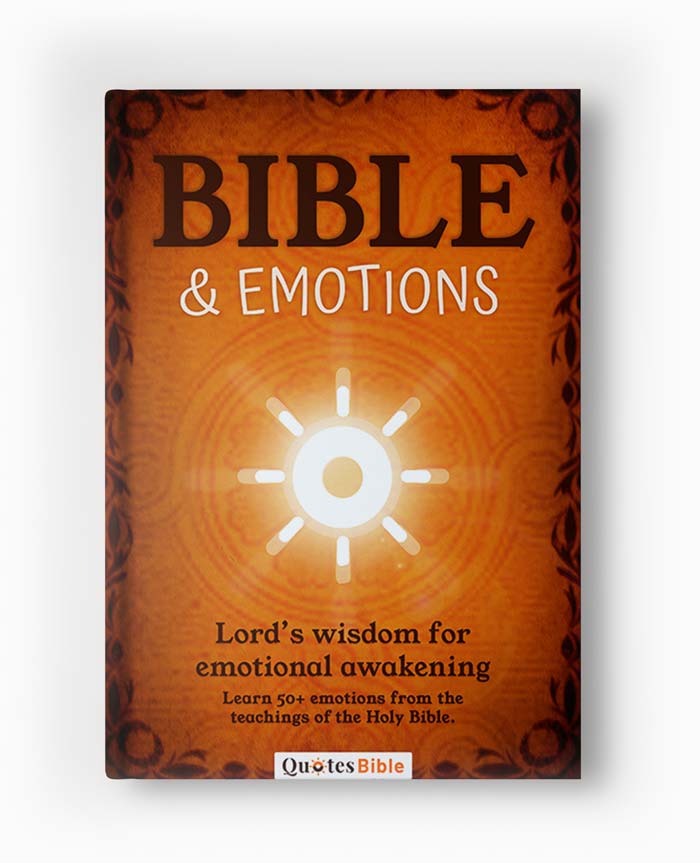Introduction
What Hatred means?
Hatred is a deep and intense dislike or hostility toward someone or something.
Hatred: An Important Concept of the Bible?

Welcome to our blog post titled “Hatred Verses from the Bible.” Today, we delve into a complex and often misunderstood topic: the portrayal and context of hatred within the biblical texts. The Bible, a cornerstone of religious thought and moral guidance for billions of people around the world, contains myriad themes, stories, and teachings. Some of these passages, when taken at face value, appear to convey messages of hatred or promote divisive actions.
In this post, we aim to explore these verses with an objective lens, seeking to understand the historical, cultural, and theological contexts in which they were written. We will examine various interpretations and how they align with broader biblical messages of love, forgiveness, and compassion. This exploration is crucial for both believers and scholars, as it helps reconcile seemingly contradictory elements of one of the world’s most influential texts.
Join us as we navigate through these challenging passages, discuss their implications, and seek to understand the true essence of the teachings within the Bible. Whether you are a
Those are the best Bible scriptures about Hatred.
They will help you to better understand hatred effects, causes of hatred, overcoming hatred, psychology of hatred, types of hatred, hatred and violence, hatred in relationships, coping with hatred…
Hatred: The Best Bible Verses
Introduction
Welcome to our blog post titled “Hatred Verses from the Bible.” Today, we delve into a complex and often misunderstood topic: the portrayal and context of hatred within the biblical texts. The Bible, a cornerstone of religious thought and moral guidance for billions of people around the world, contains myriad themes, stories, and teachings. Some of these passages, when taken at face value, appear to convey messages of hatred or promote divisive actions.
In this post, we aim to explore these verses with an objective lens, seeking to understand the historical, cultural, and theological contexts in which they were written. We will examine various interpretations and how they align with broader biblical messages of love, forgiveness, and compassion. This exploration is crucial for both believers and scholars, as it helps reconcile seemingly contradictory elements of one of the world’s most influential texts.
Join us as we navigate through these challenging passages, discuss their implications, and seek to understand the true essence of the teachings within the Bible. Whether you are a
Those are the best Bible scriptures about Hatred.
They will help you to better understand hatred effects, causes of hatred, overcoming hatred, psychology of hatred, types of hatred, hatred and violence, hatred in relationships, coping with hatred…
What Hatred means?
Hatred is a deep and intense dislike or hostility toward someone or something.
💥 [ILLUSTRATED BIBLE] – The Action Bible: God’s Redemptive Story 🎨
Hatred: An Important Concept of the Bible?
The topic of hatred in the Bible is addressed in various contexts, reflecting both human experiences and divine commandments. Here are some ways in which hatred is discussed:1. **Hatred as a Human Emotion**: The Bible recognizes hatred as a natural human emotion but often portrays it as destructive and counter to the teachings of love and forgiveness. For instance, in Proverbs 10:12, it is written, Hatred stirs up conflict, but love covers over all wrongs.2. **Divine Hatred**: There are instances where the Bible speaks of God’s hatred towards certain types of behavior, particularly sin and wickedness. For example, Proverbs 6:16-19 lists things the Lord hates, including a lying tongue, hands that shed innocent blood, a heart that devises wicked schemes, feet that are quick to rush into evil.3. **Moral and Ethical Teachings**: The Bible frequently encourages believers to avoid hatred because it
Hatred: The Best Bible Verses
1. He hath shewed thee, O man, what is good; and what doth the LORD require of thee, but to do justly, and to love mercy, and to walk humbly with thy God? — [Micah 6:8]
2. Let love be without dissimulation. Abhor that which is evil; cleave to that which is good. — [Romans 12:9]
3. If the world hate you, ye know that it hated me before it hated you. — [John 15:18]
4. He that saith he is in the light, and hateth his brother, is in darkness even until now. — [1 John 2:9]
5. Hatred stirreth up strifes: but love covereth all sins. — [Proverbs 10:12]
6. But I say unto you which hear, Love your enemies, do good to them which hate you, — [Luke 6:27]
7. Let all bitterness, and wrath, and anger, and clamour, and evil speaking, be put away from you, with all malice: — [Ephesians 4:31]
8. And ye shall be hated of all men for my name’s sake: but he that endureth to the end shall be saved. — [Matthew 10:22]
9. Ye have heard that it hath been said, Thou shalt love thy neighbour, and hate thine enemy. — [Matthew 5:43]
10. I hate, I despise your feast days, and I will not smell in your solemn assemblies. — [Amos 5:21]
11. Better is a dinner of herbs where love is, than a stalled ox and hatred therewith. — [Proverbs 15:17]
12. He that hideth hatred with lying lips, and he that uttereth a slander, is a fool. — [Proverbs 10:18]
13. Blessed are ye, when men shall hate you, and when they shall separate you from their company, and shall reproach you, and cast out your name as evil, for the Son of man’s sake. — [Luke 6:22]
14. A time to love, and a time to hate; a time of war, and a time of peace. — [Ecclesiastes 3:8]
15. And Joseph dreamed a dream, and he told it his brethren: and they hated him yet the more. — [Genesis 37:5]
16. Thou shalt not hate thy brother in thine heart: thou shalt in any wise rebuke thy neighbour, and not suffer sin upon him. — [Leviticus 19:17]
17. Let not them that are mine enemies wrongfully rejoice over me: neither let them wink with the eye that hate me without a cause. — [Psalms 35:19]
18. But this cometh to pass, that the word might be fulfilled that is written in their law, They hated me without a cause. — [John 15:25]
19. Thou shalt not bow down thyself unto them, nor serve them: for I the LORD thy God am a jealous God, visiting the iniquity of the fathers upon the children unto the third and fourth generation of them that hate me, — [Deuteronomy 5:9]
20. And when his brethren saw that their father loved him more than all his brethren, they hated him, and could not speak peaceably unto him. — [Genesis 37:4]
21. And Eliab his eldest brother heard when he spake unto the men; and Eliab’s anger was kindled against David, and he said, Why camest thou down hither? and with whom hast thou left those few sheep in the wilderness? I know thy pride, and the naughtiness of thine heart; for thou art come down that thou mightest see the battle. — [1 Samuel 17:28]
22. They that hate me without a cause are more than the hairs of mine head: they that would destroy me, being mine enemies wrongfully, are mighty: then I restored that which I took not away. — [Psalms 69:4]
23. And his brethren said to him, Shalt thou indeed reign over us? or shalt thou indeed have dominion over us? And they hated him yet the more for his dreams, and for his words. — [Genesis 37:8]
24. Consider mine enemies; for they are many; and they hate me with cruel hatred. — [Psalms 25:19]
25. He that hateth dissembleth with his lips, and layeth up deceit within him; — [Proverbs 26:24]
26. But mine enemies are lively, and they are strong: and they that hate me wrongfully are multiplied. — [Psalms 38:19]
27. And Absalom spake unto his brother Amnon neither good nor bad: for Absalom hated Amnon, because he had forced his sister Tamar. — [2 Samuel 13:22]
28. In that thou lovest thine enemies, and hatest thy friends. For thou hast declared this day, that thou regardest neither princes nor servants: for this day I perceive, that if Absalom had lived, and all we had died this day, then it had pleased thee well. — [2 Samuel 19:6]
29. But if any man hate his neighbour, and lie in wait for him, and rise up against him, and smite him mortally that he die, and fleeth into one of these cities: — [Deuteronomy 19:11]
30. For, lo, thine enemies make a tumult: and they that hate thee have lifted up the head. — [Psalms 83:2]
Conclusion
We hope you enjoyed those Hatred verses.
The conclusion of a blog post titled “Transforming Darkness into Light: Understanding and Overcoming Biblical Verses of Hatred” might emphasize the importance of contextual understanding and the evolution of moral and ethical interpretations over time. It could advocate for a reflective approach to scripture, encouraging readers to seek deeper meanings behind contentious verses and to apply principles of love, compassion, and understanding in interpreting texts. The conclusion might also call for an active engagement in dialogue and education to bridge divides and heal wounds caused by misinterpretations or misuse of biblical scriptures. Overall, it would likely underline the power of transformative interpretation to turn seemingly dark or negative passages into sources of light and wisdom, aligning with broader, more inclusive spiritual and humanistic values.
